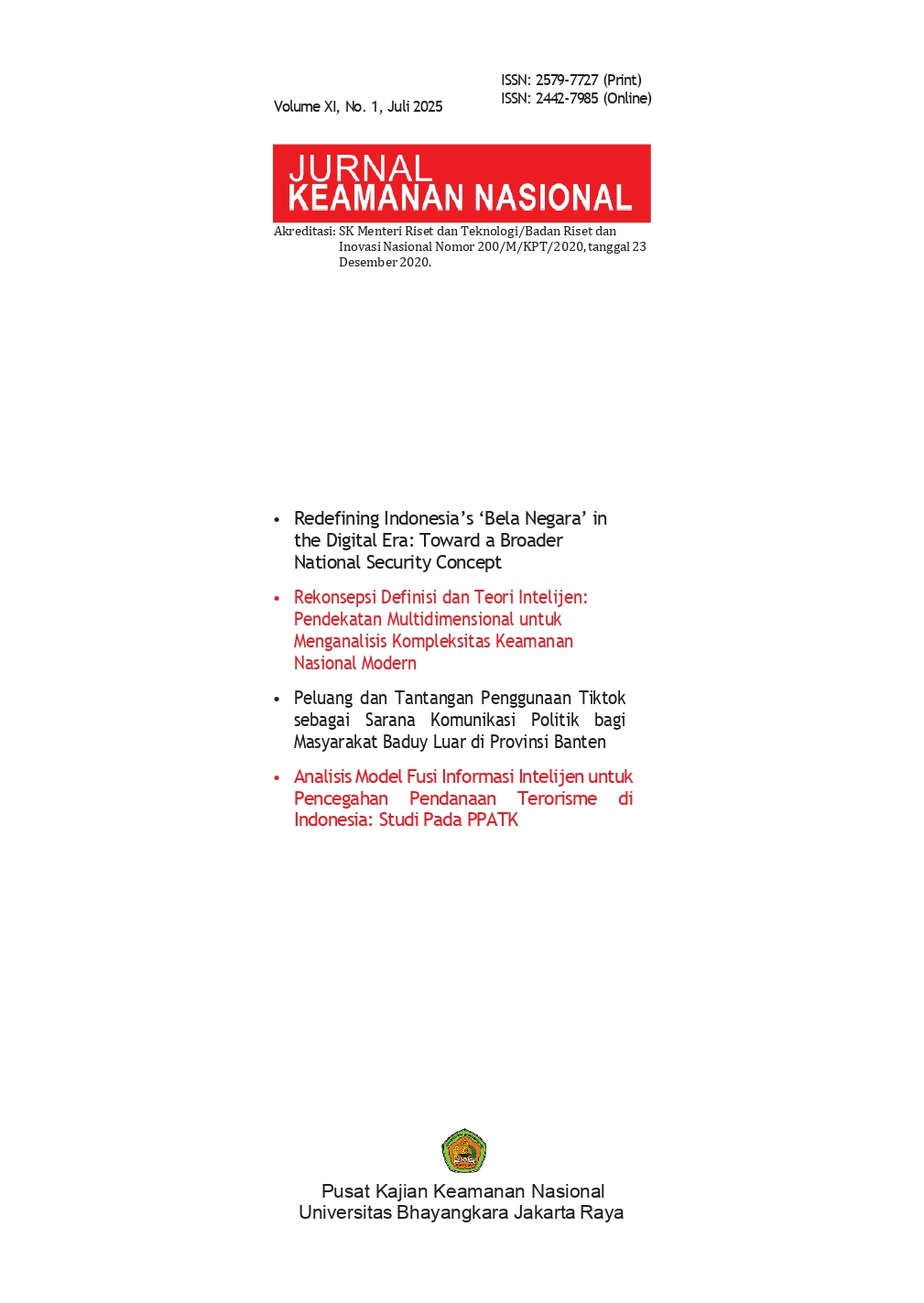Analisis Model Fusi Informasi Intelijen: Studi Kasus Informasi PPATK Tentang Pendanaan Terorisme di Indonesia
DOI:
https://doi.org/10.31599/7sj56343Keywords:
Terrorism Financing, Intelligence, Fusion CenterAbstract
The global security paradigm shifted after the Cold War from state security to human security, positioning terrorism as a primary non-traditional threat, particularly regarding its financing. Indonesia responded by establishing a legal framework and facilitating information exchange through PPATK to prevent terrorism financing. This study aims to analyze the model for fusing intelligence information using a PPATK case study to enhance the effectiveness of terrorism financing prevention through a fusion center approach. Theories applied include threat, intelligence, terrorism, terrorism financing, and information fusion. The research method is descriptive qualitative, utilizing interviews and literature studies. The analysis reveals the need for prioritization based on institutional urgency, fulfillment of 24-hour information delivery, and early prevention. The implementation of the Suspected Terrorism Financing Information System has proven effective in detection, prevention, and enforcement, enabling comprehensive tracking of terrorist networks. However, the development of a joint watchlist database remains necessary so that analytical results can support strategic decision-making in addressing the threat of terrorism financing in Indonesia
Downloads

Published
Issue
Section
License
Copyright (c) 2025 Muhamad Fuad, Hari Purwanto (Author)

This work is licensed under a Creative Commons Attribution 4.0 International License.
Please read and understand the copyright terms for submissions to this journal.
Copyright Notice
The Jurnal Keamanan Nasional is under the Creative Commons Attribution 4.0 International (CC-BY 4.0) License, according to which:
1) Authors retain copyright and grant the journal the right to first publication, with the work simultaneously licensed under the Creative Commons Attribution (CC-BY 4.0) that allows the sharing of articles published with the acknowledgement of authorship and the initial publication in this journal.
2) The authors are authorized to make additional contracts separately for distribution of the version of the work published in this journal (for example, publication in an institutional repository or as a chapter of the book), as long as there is recognition of authorship and initial publication in this journal.
3) Authors are authorized and encouraged to publish and distribute their work online (for example, in institutional repositories or on their personal pages) at any time before or during the editorial process, as it increases the impact and reference of the published work.












